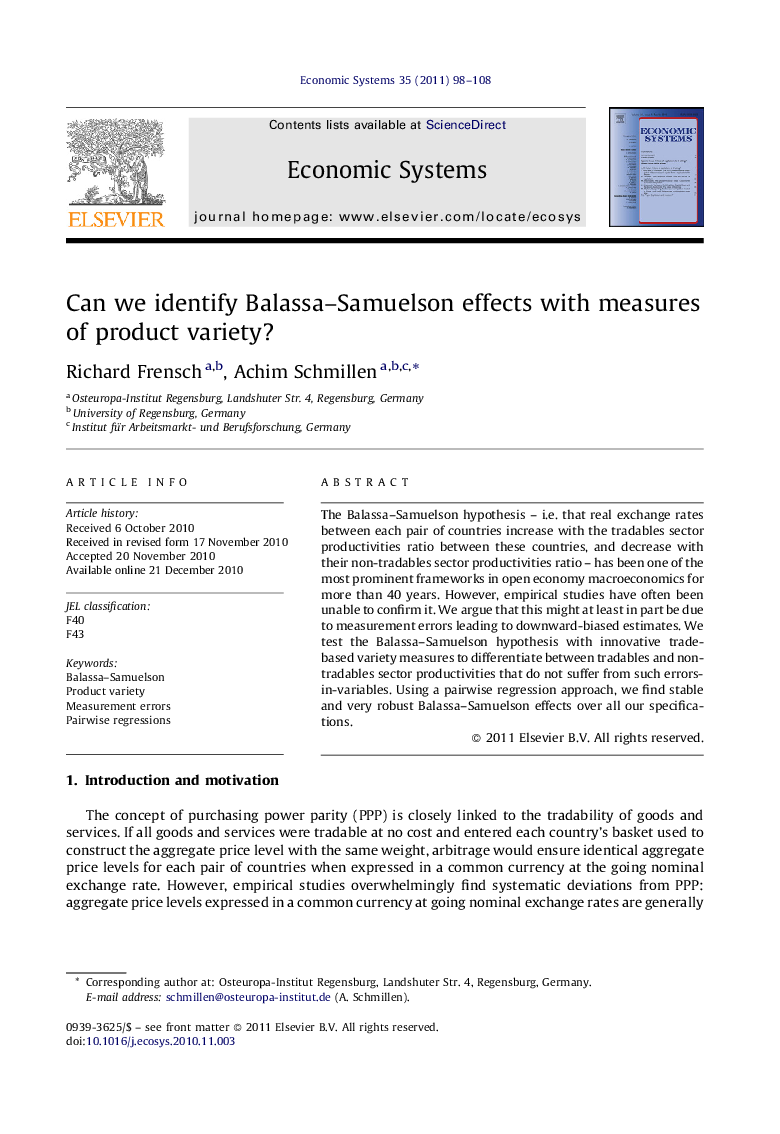| Article ID | Journal | Published Year | Pages | File Type |
|---|---|---|---|---|
| 5056500 | Economic Systems | 2011 | 11 Pages |
The Balassa-Samuelson hypothesis - i.e. that real exchange rates between each pair of countries increase with the tradables sector productivities ratio between these countries, and decrease with their non-tradables sector productivities ratio - has been one of the most prominent frameworks in open economy macroeconomics for more than 40 years. However, empirical studies have often been unable to confirm it. We argue that this might at least in part be due to measurement errors leading to downward-biased estimates. We test the Balassa-Samuelson hypothesis with innovative trade-based variety measures to differentiate between tradables and non-tradables sector productivities that do not suffer from such errors-in-variables. Using a pairwise regression approach, we find stable and very robust Balassa-Samuelson effects over all our specifications.
Research highlightsⶠThe Balassa-Samuelson hypothesis is a prominent international macro framework. ⶠHowever, empirical studies have often been unable to confirm it. ⶠThis might be due to measurement errors leading to downward-biased estimates. ⶠWe test the hypothesis with variety measures that do not suffer from such errors. ⶠUsing pairwise regressions, we find stable and robust Balassa-Samuelson effects.
